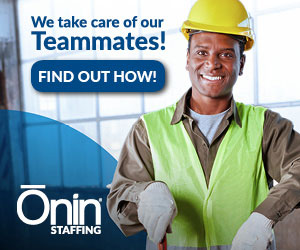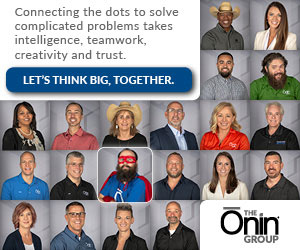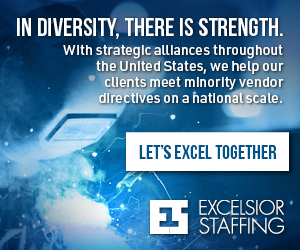Navigating labor shortages in manufacturing is challenging. Increasing automation and technological advancements elevate the demand for skilled manufacturing employees. The shortage of qualified candidates impacts organizational growth.
Many firms experience high turnover within the first 30 days. Regular hiring, onboarding, and training for the same roles reduce productivity and increase costs.
Challenges with Manufacturing Staffing
Four main challenges make manufacturing staffing difficult:
- Manufacturing industry image: Women, millennials, and Generation Z typically have negative images of manufacturing industries. They tend to view the male-dominated sectors as disengaging and lacking creativity.
- Aging manufacturing workforce: Many aging manufacturing employees are retiring. A lack of younger employees to replace them increases the labor shortage.
- Lack of skilled labor: Finding qualified candidates, especially for niche roles, is difficult.
- Automation: Concerns about being replaced by tools and technologies encourage job seekers to find roles outside manufacturing industries.
Skilled manufacturing labor drives innovation, improves operational efficiency, and expands market reach. As a result, employers must use creative approaches to hire and retain employees.
These innovative staffing strategies for manufacturing industries can help navigate labor shortages.
Embrace Diversity, Equity, and Inclusion
Diversity, equity, and inclusion (DEI) in manufacturing industries strengthen workforce cohesion, customer service, and innovation. Widening the talent pool, customizing professional development, and valuing all employees help leadership better understand and serve diverse customer bases. These actions strengthen revenue, the bottom line, and business growth.
The following activities support DEI in manufacturing staffing:
- Develop job descriptions with gender-neutral language to encourage women to apply.
- Create diverse interview panels.
- Provide a supportive work environment.
- Offer cultural sensitivity training.
- Implement employee resource programs (ERPs) for underrepresented groups.
Maintain an Attractive Culture
Create a company culture prioritizing work-life structure, well-being, recognition, and rewards. Standing out as an employer of choice in manufacturing strengthens employee attraction and retention rates.
These offerings support an attractive culture:
- Competitive compensation
- Performance bonuses
- Healthcare
- Retirement plan with company match
- Generous paid time off (PTO)
- Scheduling flexibility
Offer Daily Pay
Manufacturing employee earnings can be deposited into their bank accounts or debit cards daily rather than biweekly or monthly. Prompt payment helps employees pay bills on time and avoid late fees and payday loans.
Broaden Employee Benefits
Wellness options such as onsite clinics for employees and their families and employee assistance programs attract and retain manufacturing employees. Also, daycare inside factories encourages single parents to apply for jobs.
Invest in Professional Development
Manufacturing employees desire ongoing learning and development opportunities. According to PricewaterhouseCoopers’ Global Workforce Hopes and Fears Survey 2024, 67% of respondents without opportunities to develop new skills were likely to switch to a new employer in the next 12 months. Therefore, employers who invest in mentorship opportunities, training programs, and employee career planning can find and keep the best talent.
Encourage Employee Referrals
Ask employees to share job openings with their networks. They likely know other manufacturing employees who might be interested in new opportunities.
Employee referrals provide many benefits:
- Employee referrals typically fit with company culture and meet the job requirements.
- Referrals can be fast-tracked through the hiring process and start onboarding and training.
- Employee referrals often remain long-term because they know someone within the organization.
- Employers save time and money on hiring, onboarding, and training.
Provide a gift card, additional PTO, a bonus, or another incentive for successful employee referrals. Regular referrals help maintain talent pools and staffing efficiency.
Leverage Online Recruiting
Manufacturing firms with a strong online presence enhance their employer brand. Showcasing a positive company culture encourages candidates to apply for roles:
- Share employee testimonials, behind-the-scenes videos, and company achievements on the company website and social media pages to resonate with job seekers.
- Run targeted recruitment campaigns to fill manufacturing staffing needs.
- Interact with followers to build relationships and encourage job applications and referrals.
- Optimize job postings on manufacturing job boards, professional networking sites, and other industry-specific platforms to reach candidates with the required knowledge, skills, and experience.
- Reach a wide audience, engage with younger generations, and encourage job applications.
Conduct Interviews
Make a positive impression during manufacturing interviews to encourage candidate engagement in the hiring process:
- Provide an inviting interview space.
- Smile while warmly greeting the candidate.
- Give relevant information about the company, culture, job, work environment, hours, and related details.
- Clearly and transparently answer candidate questions.
- Offer a tour of the manufacturing facility.
Many manufacturing candidates post employer reviews to share their experiences with an organization. Providing a positive candidate experience encourages positive reviews and referrals to elevate employee attraction and retention.
Set Realistic Expectations
Preparing new hires for manufacturing environments encourages them to remain long-term. For instance, setting realistic expectations and clarifying their day-to-day activities encourage transparency and open communication. Also, demonstrating the value employees provide creates a sense of accomplishment and pride in their work. These activities support new hire growth within the organization.
Develop Employee Career Paths
Offer apprenticeships for new hires to earn income while developing their manufacturing knowledge and skills. Promote these programs with local educational institutions to encourage students to apply. Include a bonus and job offer for apprenticeship completion.
Encourage managers to meet with employees for career planning:
- Focus on the employee’s goals, skills, experience, and interests.
- Clarify senior roles that align with relevant career paths.
- Include the knowledge, skills, and other criteria for promotions.
- Provide equitable guidance, resources, and support for learning and development.
Creating a path forward sets your manufacturing firm apart from competitors offering similar starting wages but less mobility. Encouraging employees to enjoy their roles and pursue new skills, bigger responsibilities, and more income strengthens organizational value and employee attraction and retention rates.
Elevate the Employee Experience
These tips can elevate the manufacturing employee experience to strengthen attraction and retention rates:
- Conduct regular engagement and culture surveys to understand employee needs and preferences.
- Transparently share the engagement and culture survey results.
- Implement the suggestions for improvement that have the greatest potential impact.
- Continuously monitor and enhance the employee experience.
Prioritize Employee Retention
According to the National Association of Manufacturers Q4 2024 Manufacturers’ Outlook Survey, approximately 56% of respondents ranked attracting and retaining a quality workforce as a top concern. As a result, employers are taking steps to keep top talent.
For instance, a PricewaterhouseCoopers 2023 Pulse Survey found that 64% of manufacturing executives were expanding employee mental health benefits and investing in upskilling initiatives to train on new technologies. Also, 60% of executives increased employee compensation to encourage long-term employment.
Partner with a Manufacturing Staffing Agency
A manufacturing staffing agency has a vast, deep network of skilled labor. A recruiter can match an employer with experienced talent that fits short- and long-term hiring needs:
- The staffing agency sources, screens, tests, and interviews manufacturing candidates.
- Qualified candidates are added to the agency’s database.
- An employer meets with a recruiter to discuss their staffing needs; the company’s culture; the job duties, responsibilities, and requirements; and other relevant details.
- The recruiter sends a few qualified candidates for interviews.
- The employer conducts interviews and negotiates a job offer.
- The recruiter helps with onboarding and regularly follows up to ensure satisfaction.
- The employer can request a replacement if the new hire does not work out.
Work with The Ōnin Group
The Ōnin Group can provide skilled labor to fill manufacturing staffing needs. Find out more today.
Sources
- https://www.grantthornton.com/insights/articles/manufacturing/2023/new-workforce-strategies-in-manufacturing
- https://summit-tsi.com/creative-strategies-for-recruiting-for-manufacturing/
- https://workbright.com/blog/manufacturing-recruiting-tips/
- https://www.pwc.com/us/en/industries/industrial-products/library/manufacturing-talent-strategy.html#:~:text=Be%20transparent%20and%20proactive%20about,initiatives%20that%20offer%20scheduling%20flexibility.
- https://www.pwc.com/gx/en/issues/workforce/hopes-and-fears.html
- https://nam.org/2024-fourth-quarter-manufacturers-outlook-survey/
- https://www.pwc.com/us/en/library/pulse-survey/business-reinvention.html






